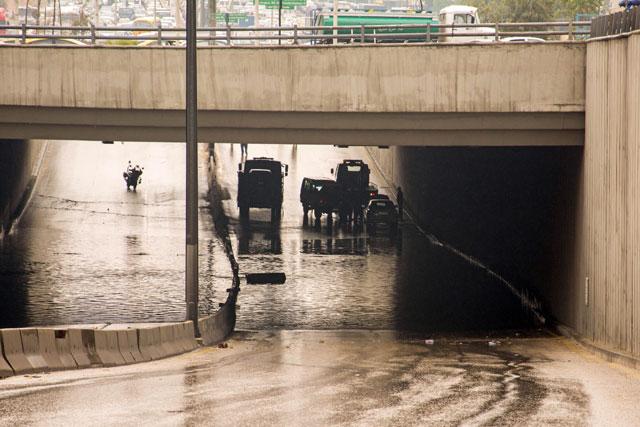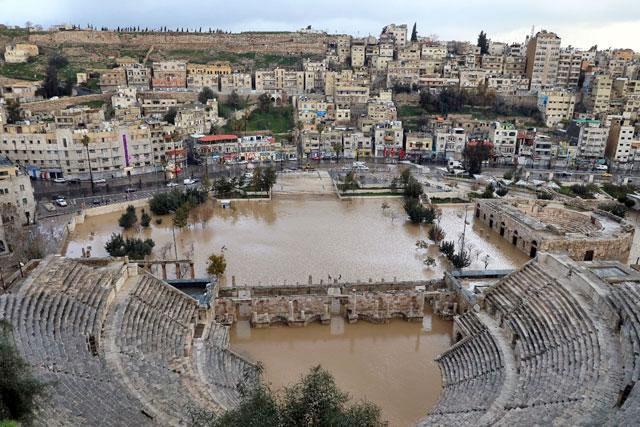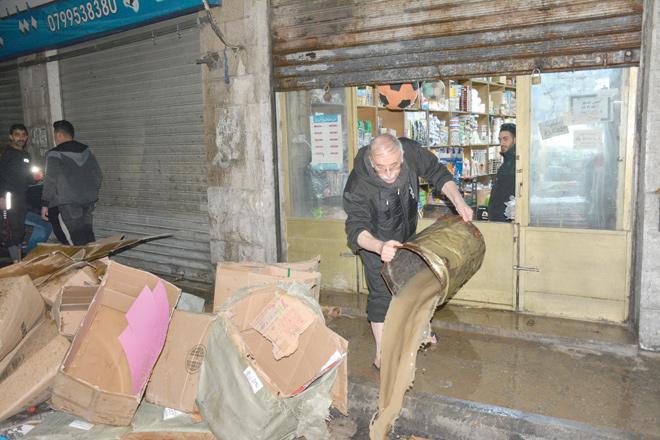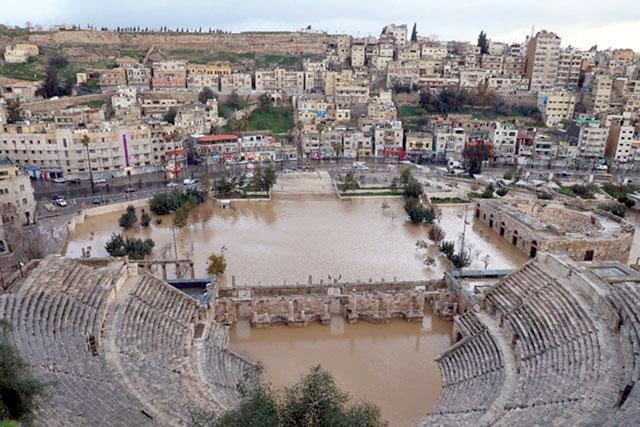You are here
'Cooperation between citizens, public institutions key to climate-resilient infrastructure'
By Maria Weldali - Oct 17,2019 - Last updated at Oct 17,2019

The Greater Amman Municipality is 'actively' taking measures to address environmental change, according to an official (Photo by Amjad Ghsoun)
AMMAN — The Greater Amman Municipality (GAM) does its “utmost” to build a climate-resilient infrastructure, Deputy City Manager for Districts and Environmental Affairs at GAM Hosam Nejdawi said.
Climate change has clearly impacted rainfall patterns, causing heavy down pours in different areas, which has become difficult to overlook, Nejdawi told The Jordan Times on Wednesday.
To prevent the occurrence of deadly flashfloods, similar to those that struck the Kingdom last year, GAM has developed a strategy that relies on cooperation between citizens and public institutions to create a sturdy infrastructure, Nejdawi said.
GAM is "actively" taking measures to address environmental change, reverse the impact of climate change on Amman’s economy through preparedness plans for winter and maintain drainage systems, the official said.
"Our goal is to increase the efficiency of drainage systems by increasing the number of box culvert designs in our infrastructure," he said.
"We have developed a plan to raise awareness of climate change, the importance of pump maintenance, especially in low-lying flood-prone areas and the need to keep members of the public away from areas of low altitude during heavy rainfall using billboards, social media and GAM's website," Nejdawi added.
GAM has provided JD2 million in compensation to traders affected by last year’s floods, which damaged their shops in downtown Amman last February, while Amman Chamber of Commerce (ACC) contributed JD1 million, according to ACC statements.
Mohammed Abdul-rahim, sport clothing shop owner on Quraysh Street in downtown Amman, told The Jordan Times over the phone on Wednesday that last March heavy rains caused extensive damage, especially to Quraysh Street traders, noting that nearly 1 metre of rain water filled with sediment and wastewater entered his shop, causing massive loss.
"I have been compensated 50 per cent only, which is not enough compared to the devastating loss," Abdul-rahim said.
"Last month I was given JD3,500, but the truth is that these compensations are not permanent solutions for the problem, which is a reason for us to worry," he added.
“The sewage system in our shop was capable of absorbing a lot of water without runoff problems, therefore we dealt with the flood immediately and prevented waters from engulfing our place,” a cheese shop owner on Quraysh Street told the Jordan Times on Wednesday.
Related Articles
AMMAN — The Greater Amman Municipality (GAM) has been working to avoid the reoccurrence of floods similar to those that inundated downtown l
AMMAN — Traders in Downtown Amman’s Quraysh Street reported a significant rise in water levels during the heavy rainfall on Wednesday.
AMMAN — The Greater Amman Municipality (GAM) and the Amman Chamber of Commerce (ACC) will reimburse traders who incurred damages due to heav














